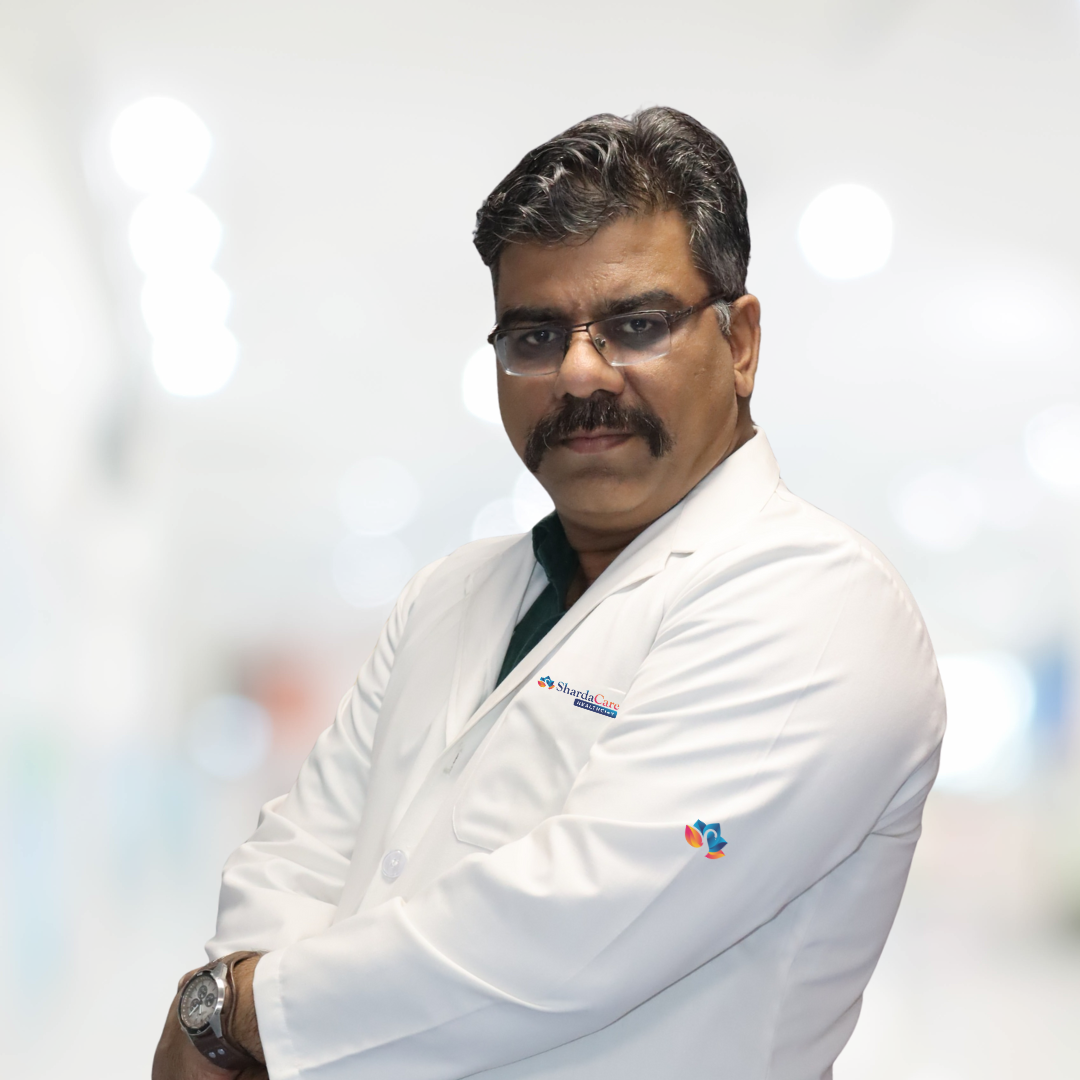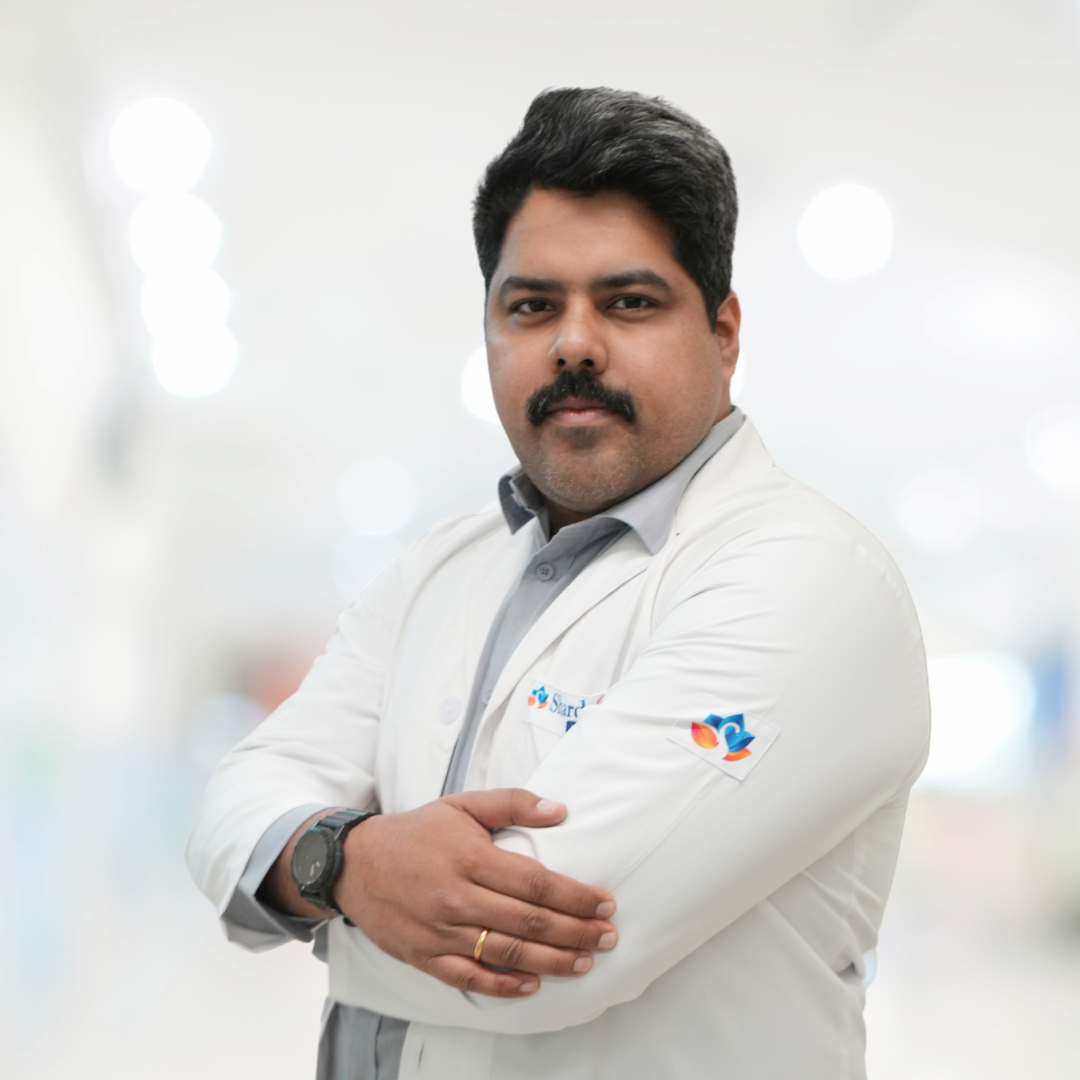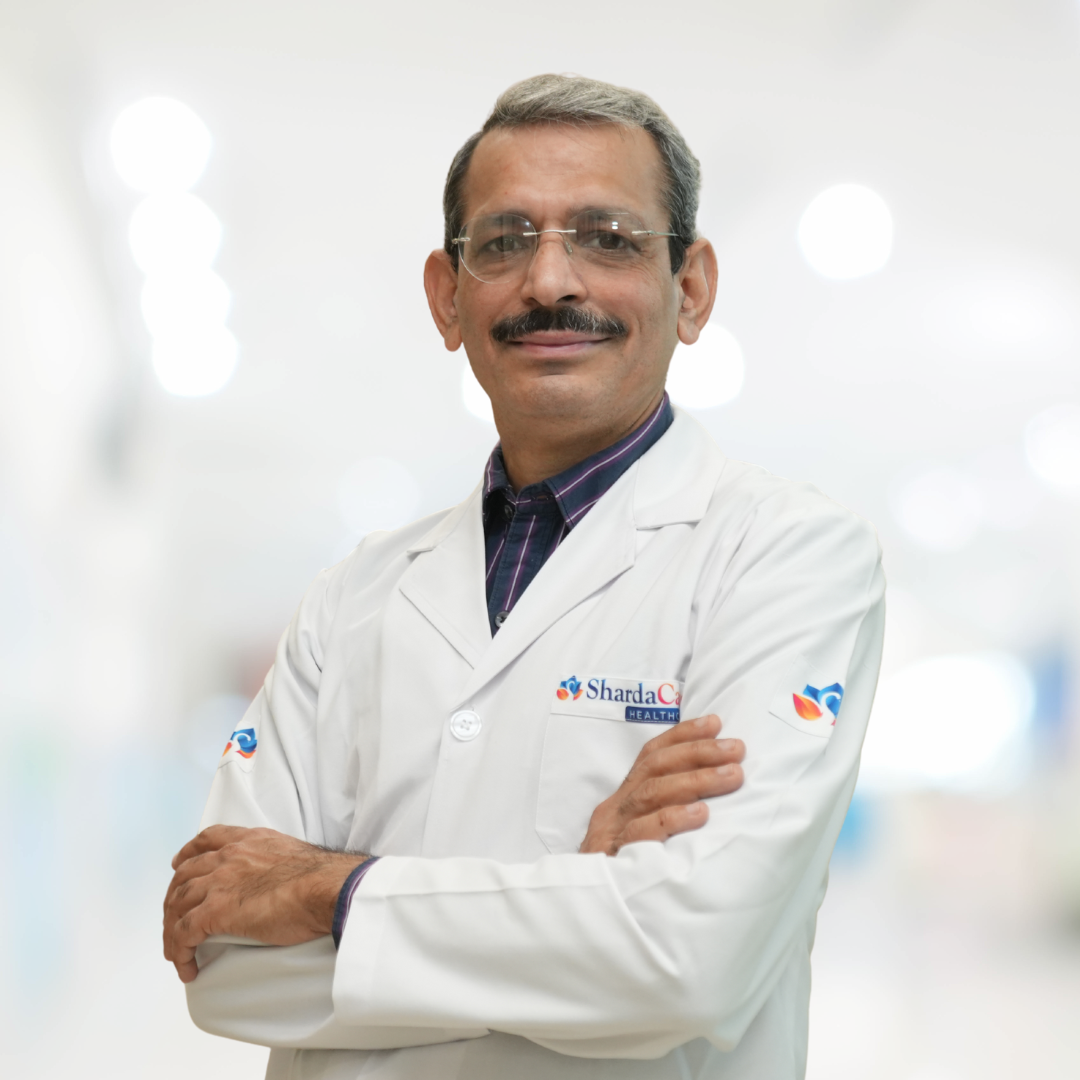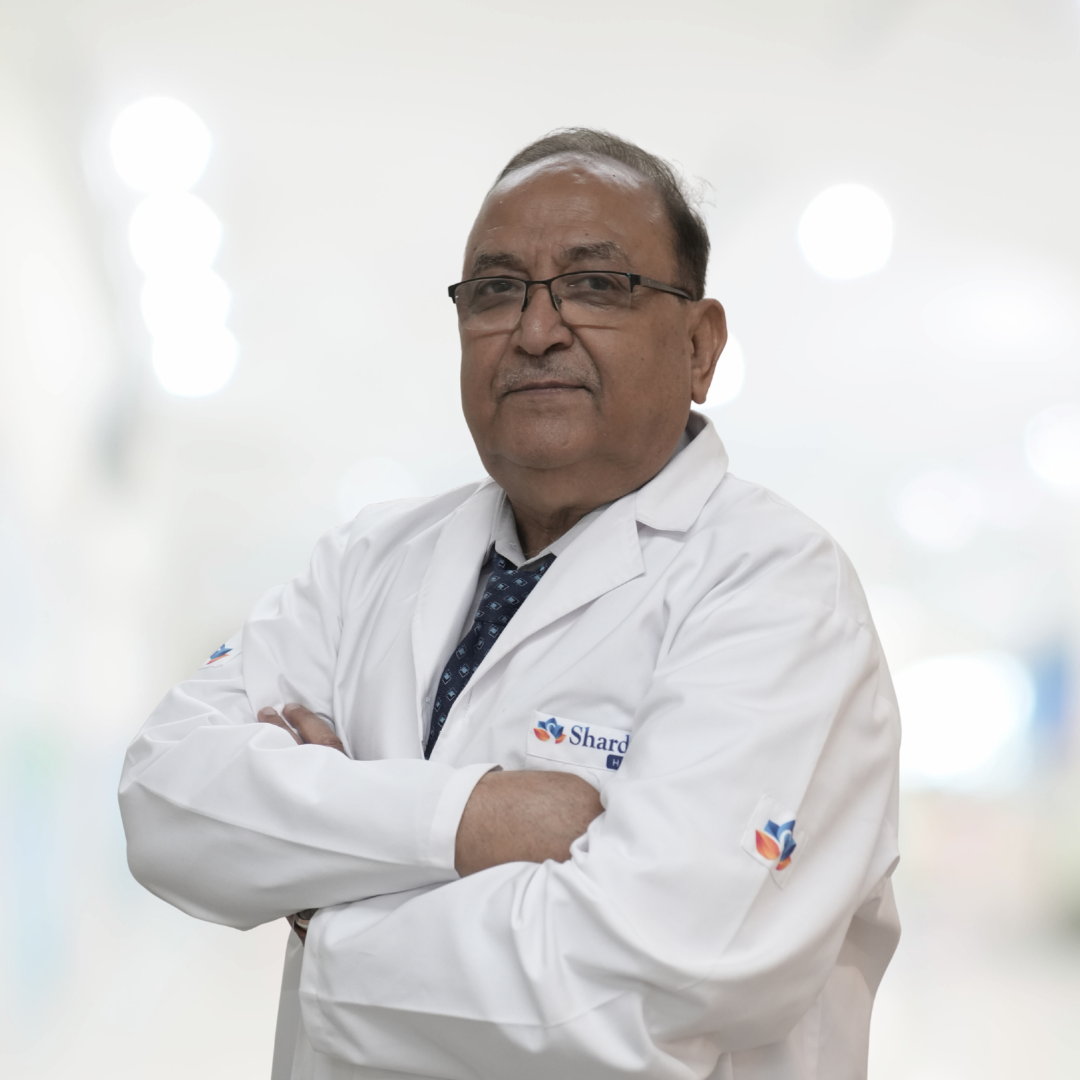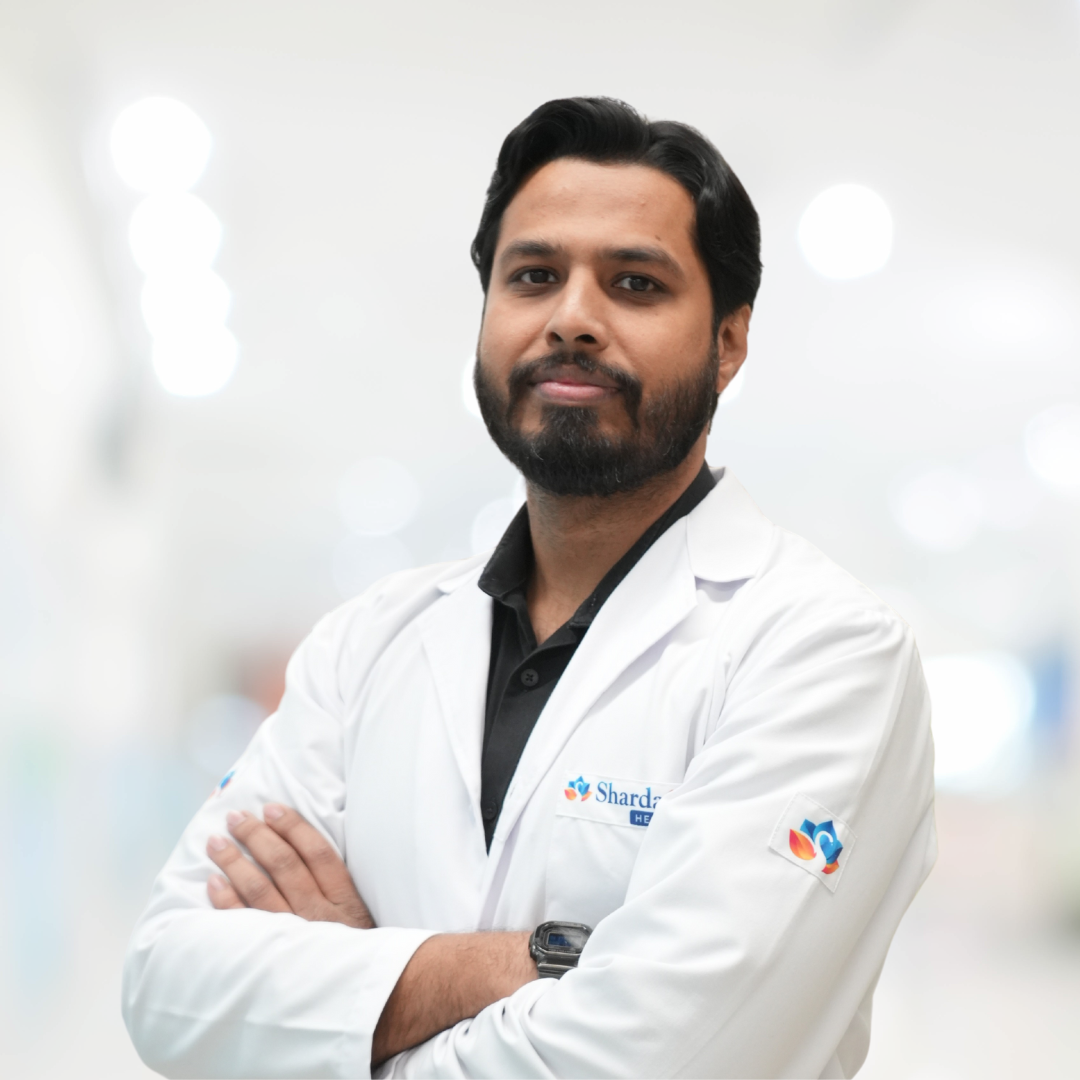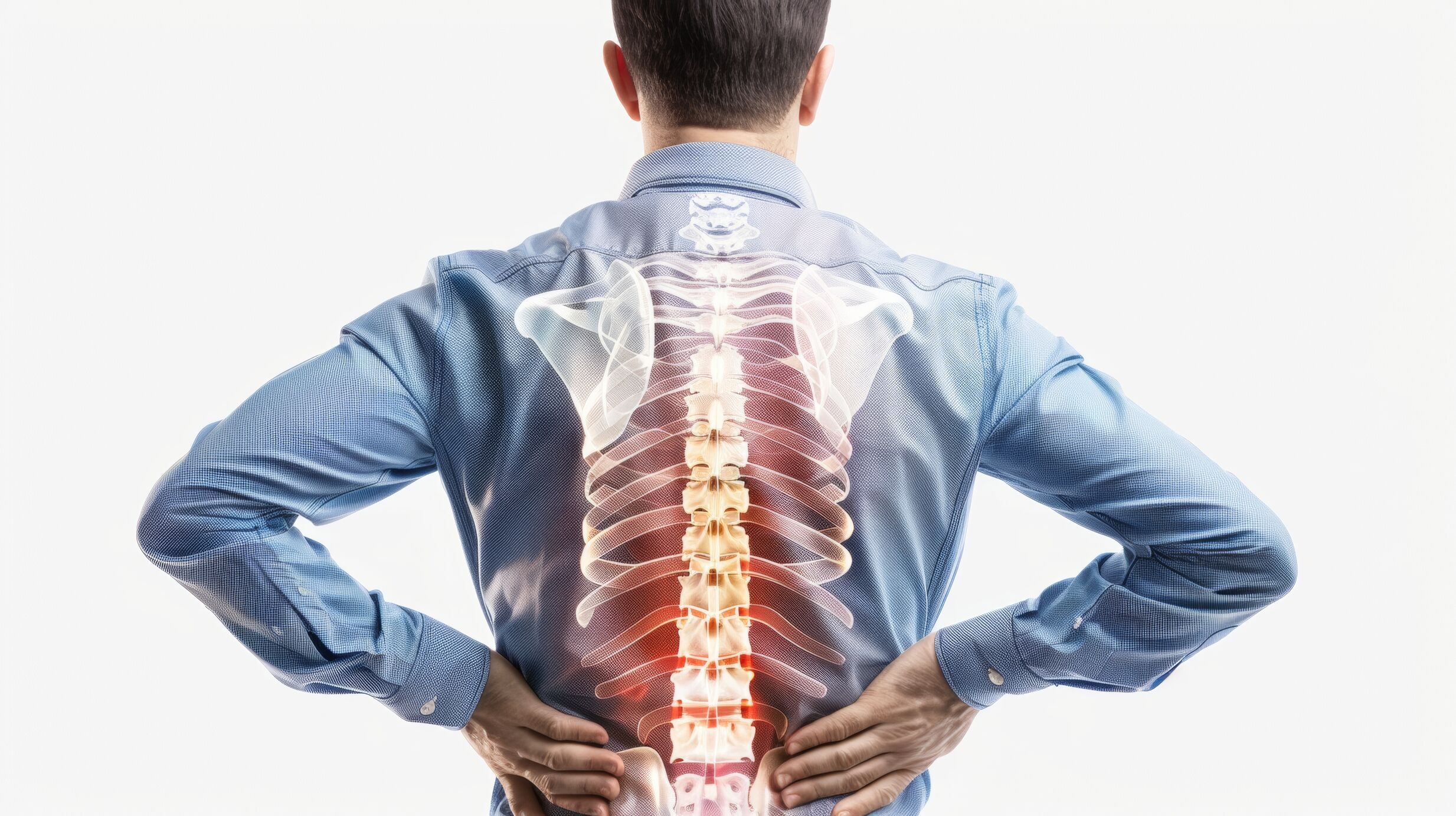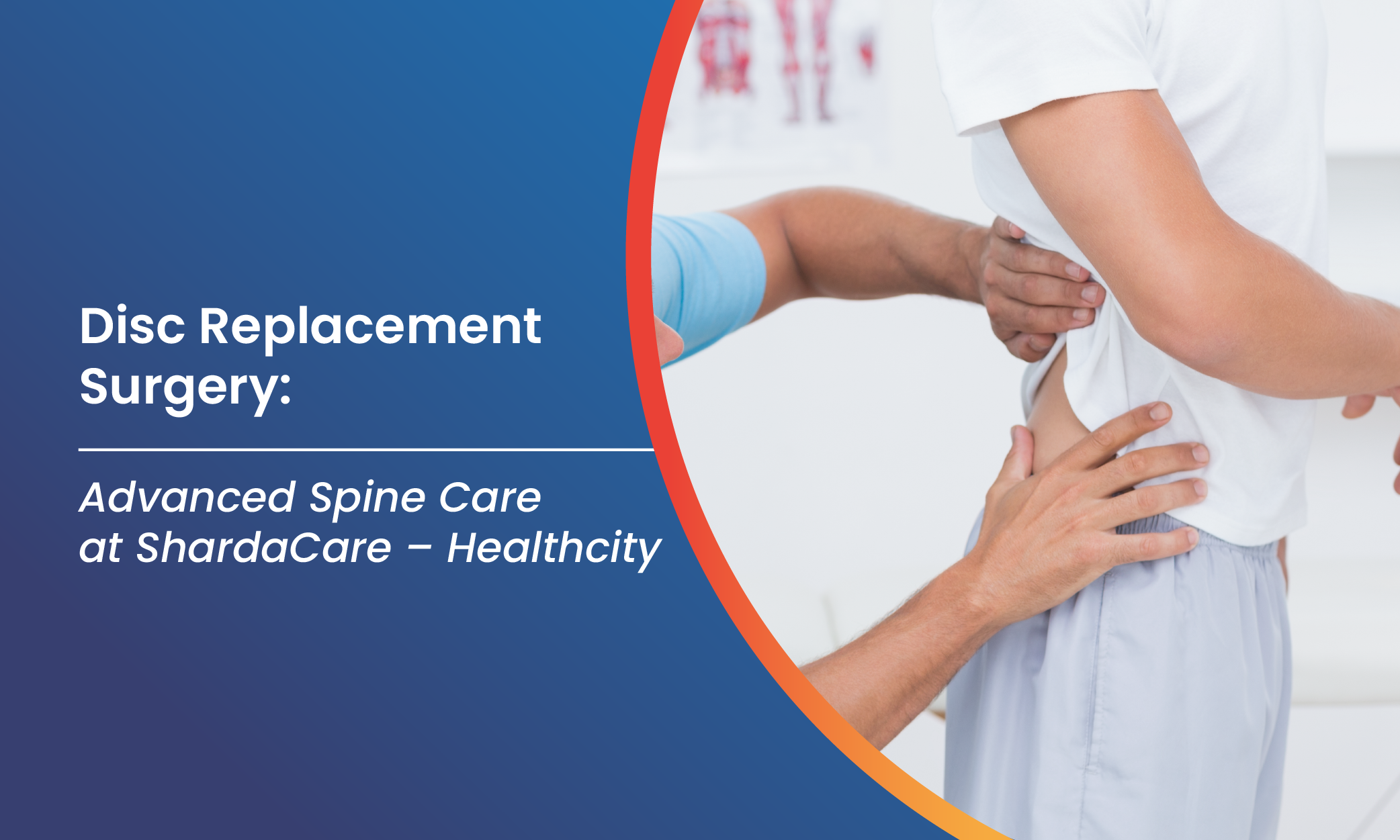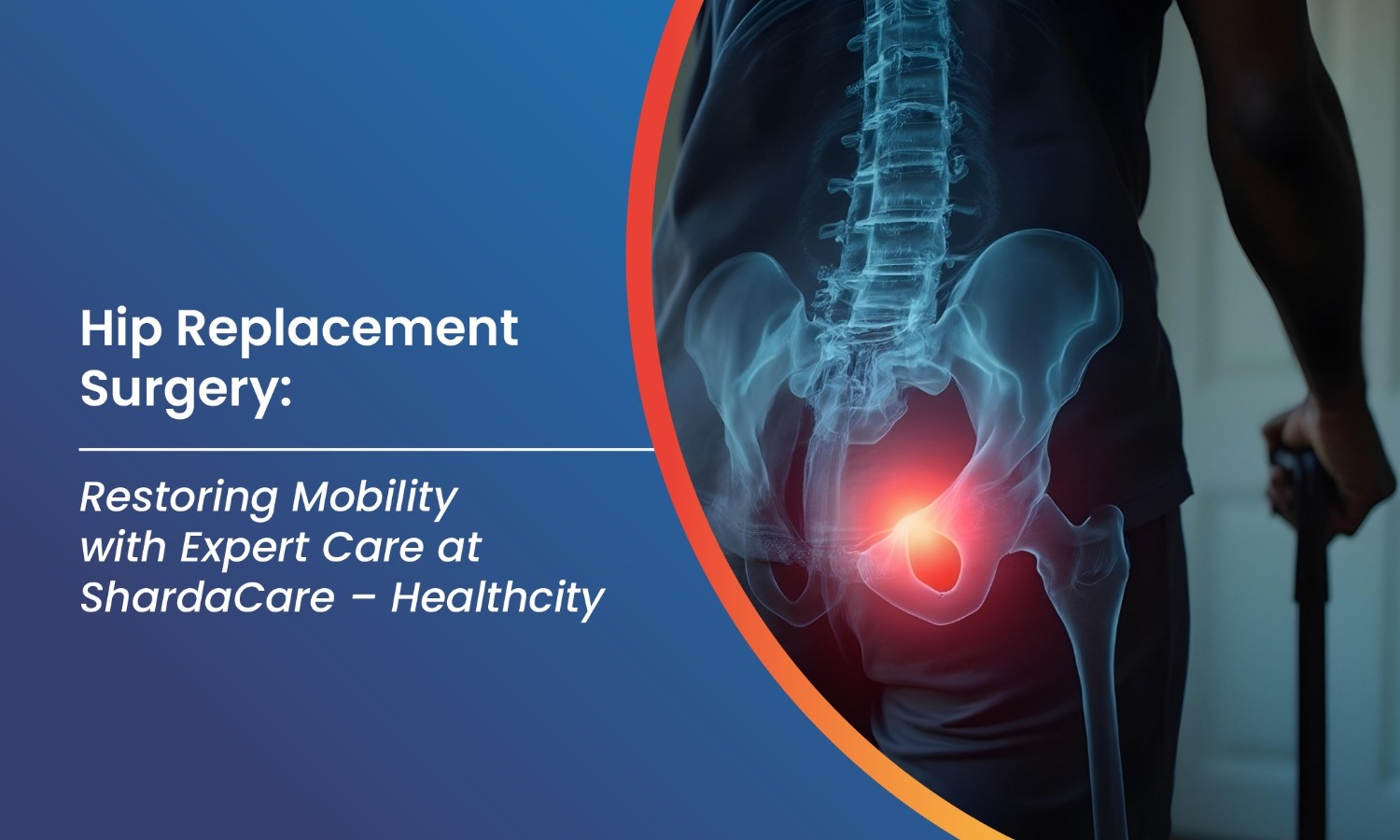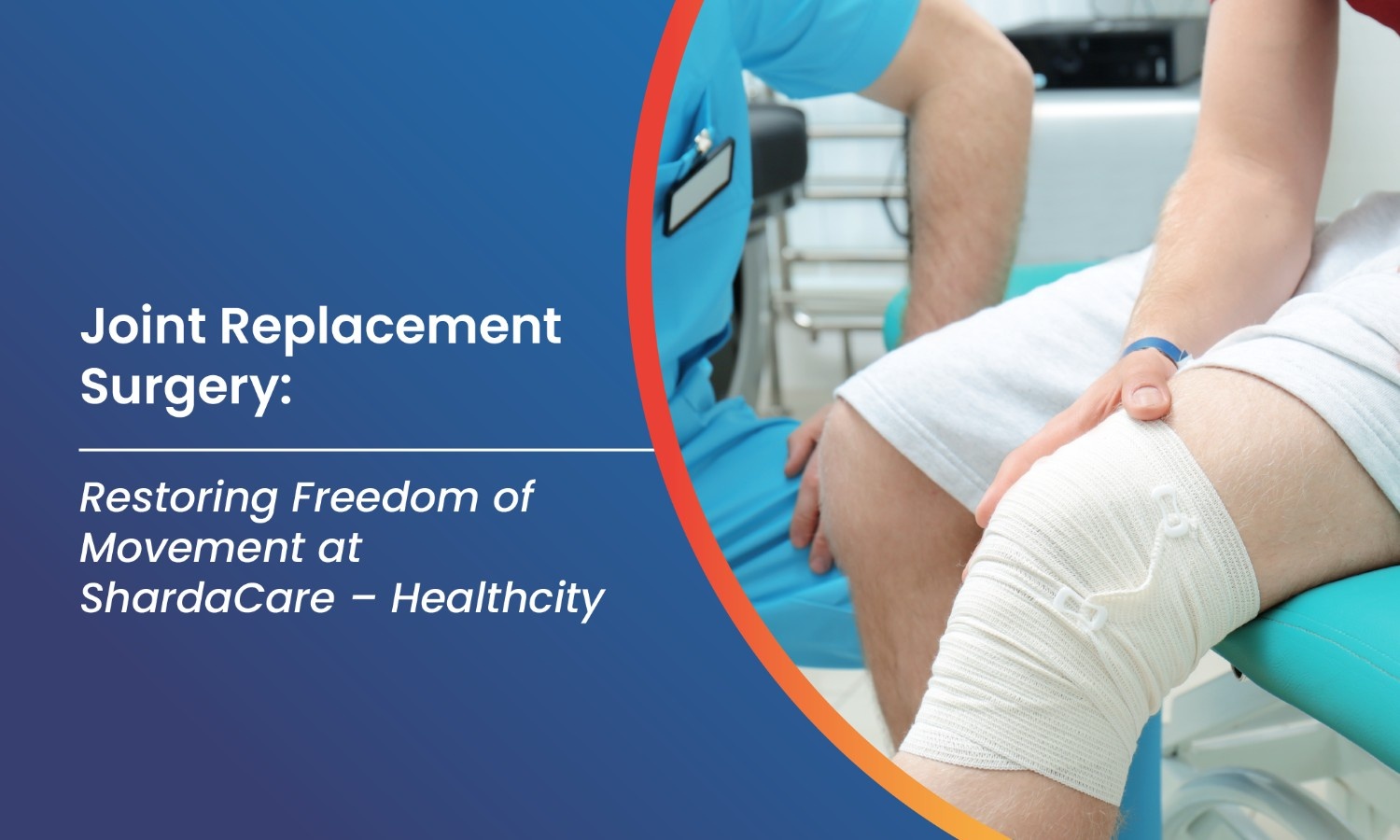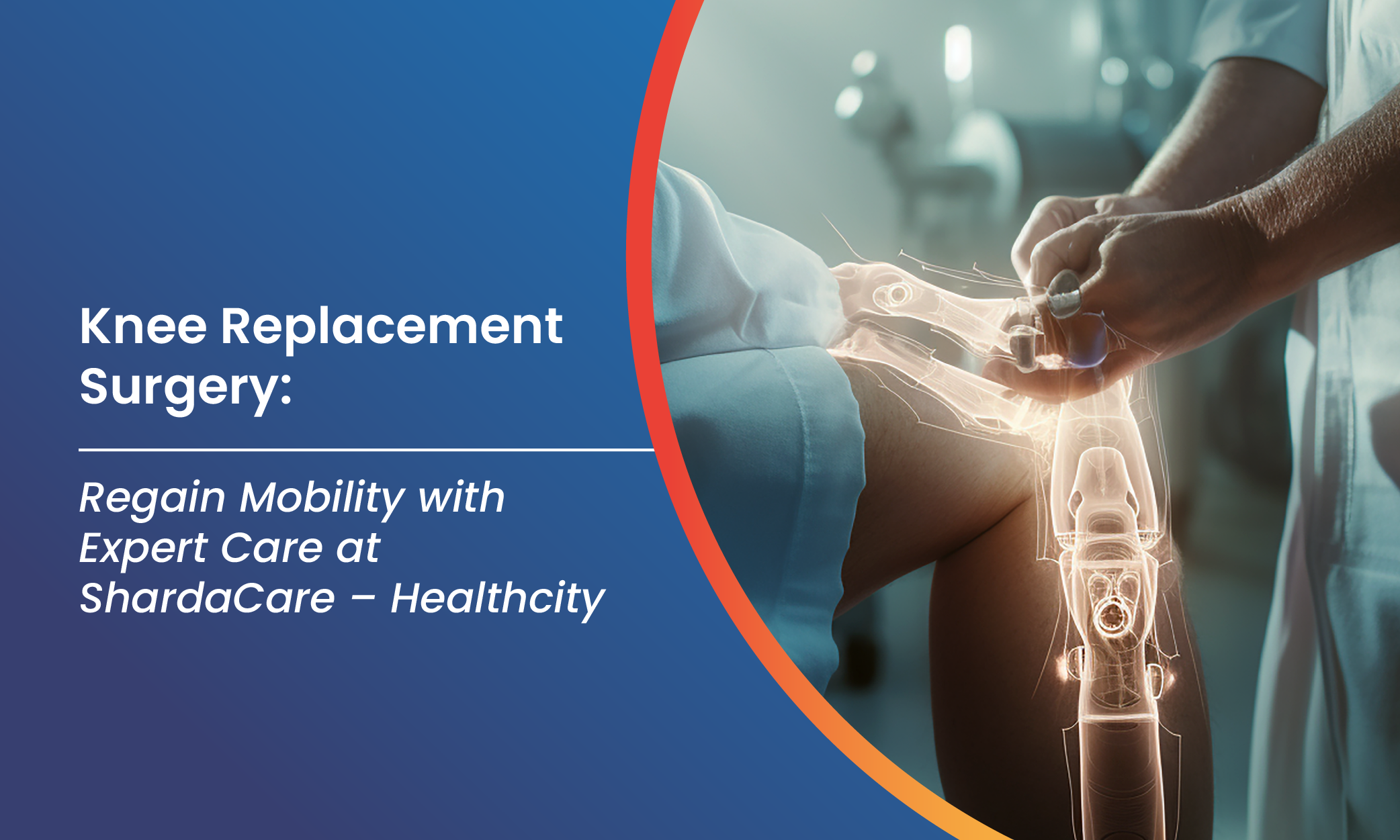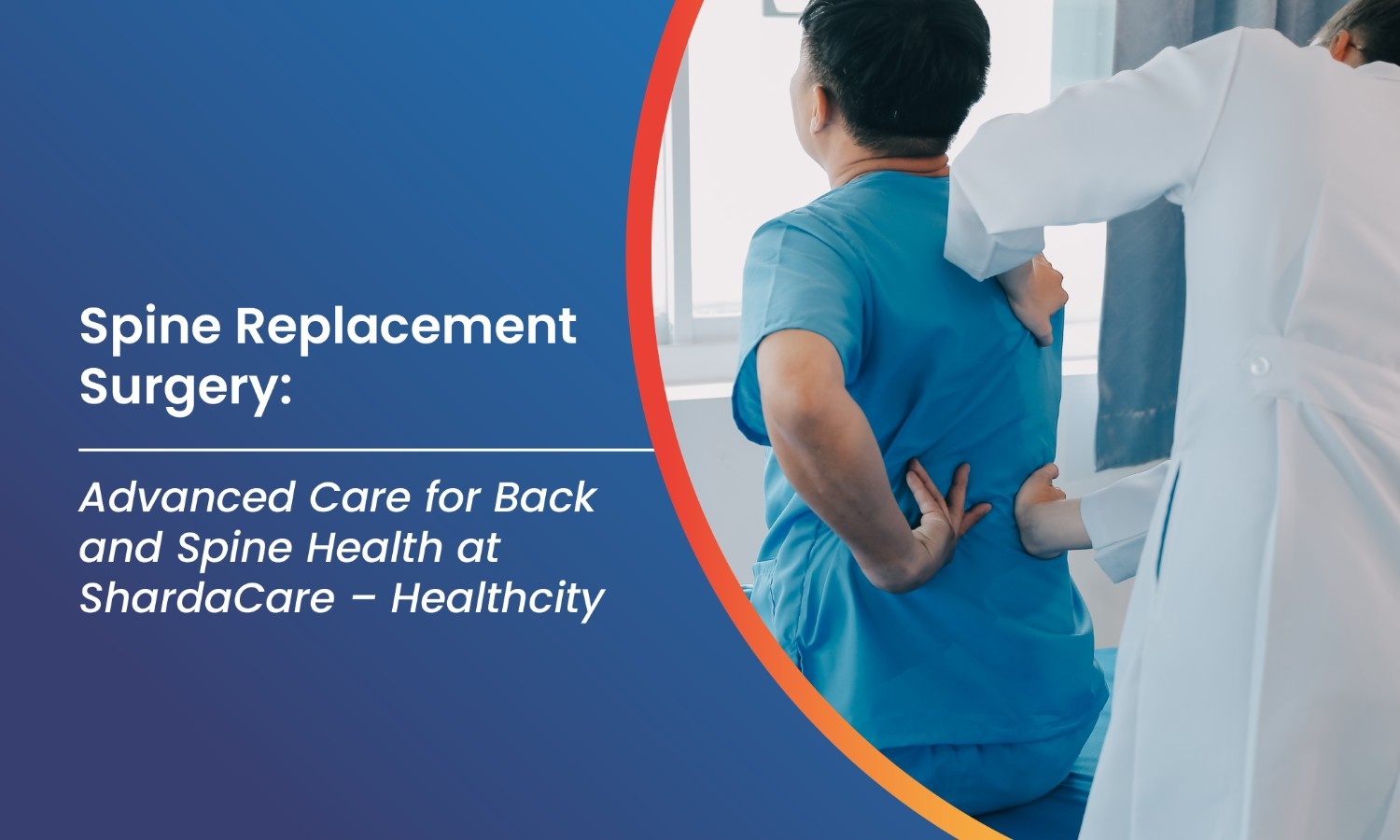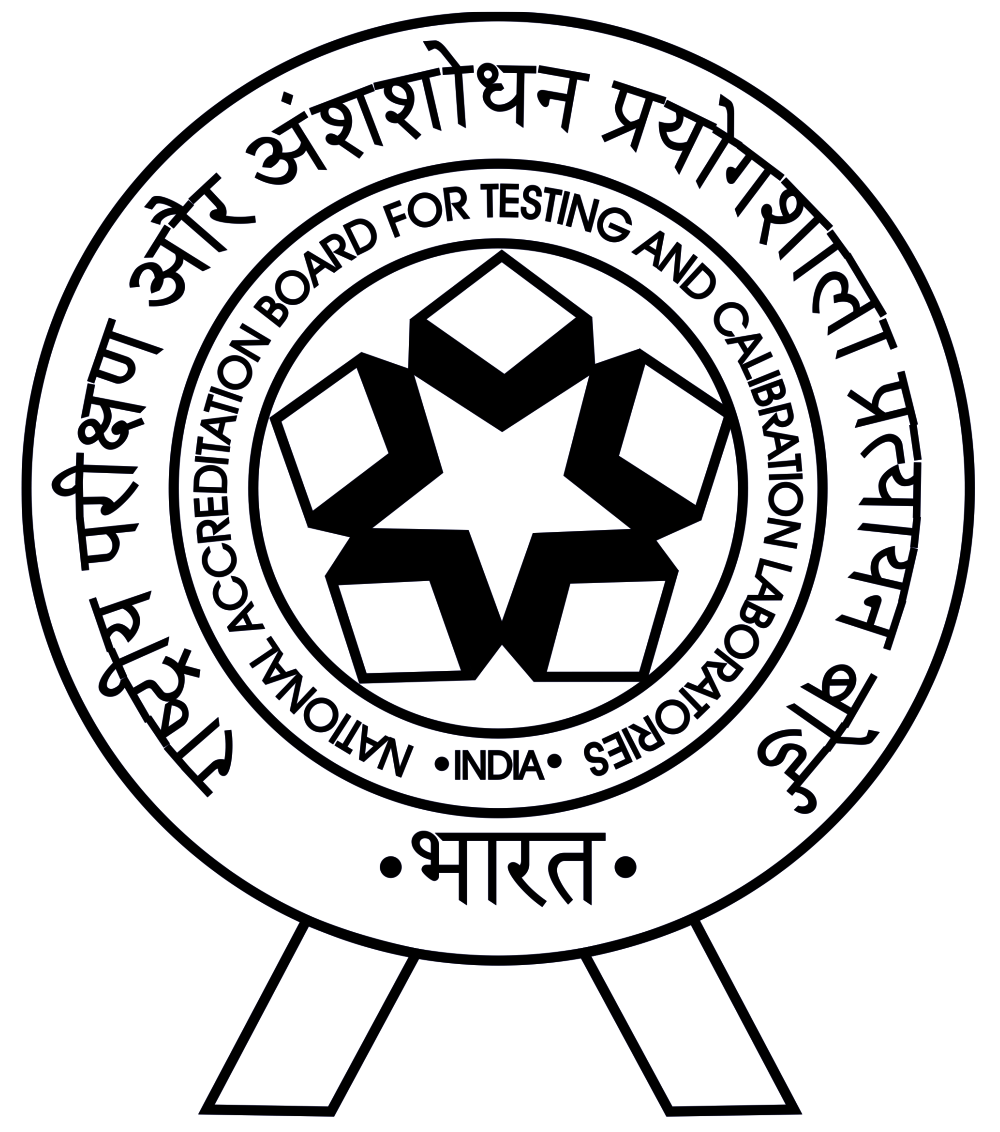
Disc Replacement Surgery for Spine & Back Pain at ShardaCare – Healthcity
Any persistent Lower Back Pain lasting for at least six months and unresponsive to Medication may necessitate Disc Replacement Surgery to restore functionality. During Disc Replacement Surgery, the Painful Disc is replaced with a Prosthetic Implant, aiming to alleviate discomfort and improve mobility. However, not everyone is a candidate for this procedure. Certain health conditions, such as Osteoporosis, Spinal Tumor, Pregnancy, Vertebral Body Fracture, and Allergies to Implant materials, may preclude individuals from undergoing Disc Replacement Surgery.
Our team at ShardaCare - Healthcity , is dedicated to providing comprehensive care and personalized treatment options tailored to each patient's unique needs and circumstances. We prioritize patient safety and well-being throughout the treatment process, ensuring the best possible outcomes for our patients.
At ShardaCare - Healthcity, we offer advanced Surgical options for Disc Replacement to address Spine-related issues:
- Anterior Cervical Discectomy and Fusion (ACDF): ACDF is a well-established Surgical procedure for Cervical Spine issues. Regarded as the gold standard in Spine Surgery, it boasts a long history of efficacy and positive outcomes. This surgery is considered safe, effective, and relatively straightforward, with favourable recovery potential. The procedure involves two stages: first, the damaged Cervical Disc is completely removed (discectomy), followed by the placement of a Bone Graft to facilitate fusion with the adjacent Vertebrae.
- Cervical Disc Replacement: Also known as total Disc Arthroplasty or Artificial Disc Replacement, this procedure involves replacing a damaged Cervical Disc with a Metallic or Polymeric Prosthetic. Surgeons make an incision in the side of the neck to access the affected area and carefully remove the damaged Disc along with any Tissue or Bone Spurs. The prosthetic disc is then precisely inserted, and the incision is closed. Patients typically recover within three to four weeks and can resume work and light activities. More Strenuous activities may need to be postponed for six to eight weeks.
- Artificial Disc Replacement in the Lumbar Spine: In this procedure, Worn or Damaged Disc material between the Vertebrae in the Lumbar Spine is replaced with a Synthetic Disc. The goal is to alleviate Back Pain while preserving motion, a benefit that sets it apart from procedures like Spinal Fusion.
At ShardaCare - Healthcity, we strive to provide cutting-edge Surgical interventions for Disc Replacement, tailored to each patient's unique needs, ensuring optimal outcomes and improved quality of life.
Looking for an Expert
ShardaCare - Healthcity is home to some of the eminent Doctors in the world.
Book an Appointment

